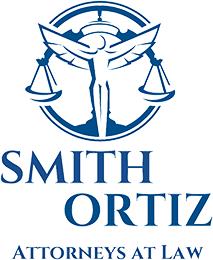
What Is Bankruptcy?
Bankruptcy is a process in which debtors have the opportunity to get a fresh financial start. There are several forms of bankruptcy, called "chapters." They are called chapters simply because there are several chapters in the bankruptcy code that describe different forms of bankruptcy.
Different Bankruptcy Chapters
- The most common form of bankruptcy is Chapter 7, usually called personal bankruptcy or liquidation bankruptcy. This form of bankruptcy takes 4 - 5 months to complete, and at the end of the process, the individual, couple or business owner will have the majority of their debts discharged.
- Those that cannot qualify for Chapter 7 bankruptcy protection can file Chapter 13, in which overdue bills are paid off over a 3 - 5 year period in a payment that they can afford.
Which form of bankruptcy is right for you? At Smith Ortiz, P.C., we have focused our practice on helping people in serious financial trouble to get back on their feet through bankruptcy, or one of the many alternatives that may be effective, based upon their individual situation.
Qualifying for Chapter 7
Under federal bankruptcy law, you have the right to seek debt relief by filing Chapter 7, which allows for the discharge of your unsecured consumer debt. When debt is discharged, it is gone forever and you will never deal with it again. This is known as liquidation bankruptcy, but in fact, most people lose nothing other than debt when they file.
The process includes a full analysis of your financial situation and in 2005, the laws were amended, making it more difficult to qualify for Chapter 7, but people who are in serious financial trouble and absolutely cannot pay their debts usually still qualify. The process involves taking the "means test" which measures your current income against the state's median. People who earn above the median and have disposable income, are taking home a paycheck or own too many assets usually will be best served by filing Chapter 13. There are advantages to both forms of bankruptcy, and we would like to help you make an informed decision.
Filing for Bankruptcy Can Give You a Fresh Start
At one time, filing for bankruptcy was a personal and financial disaster. Times have changed. Since 2008 when the country suffered an economic meltdown, unprecedented numbers of individual, couples and businesses have filed for bankruptcy, 126,000 filings in Illinois just in the first quarter of the year. It is no longer considered a failure to file for bankruptcy, but merely a legal action that is undertaken to resolve serious financial problems. About 1/3 of the people who file for bankruptcy nationwide are in financial trouble due to loss of employment.
Related Reading
- What is the Difference Between Chapter 7 and Chapter 13?
- Who Can File for Bankruptcy?
- Is Bankruptcy Right For Me?
- Illinois Bankruptcy Exemptions
Call our firm today for more information about filing for bankruptcy in Chicago.
-
Know Your Options
Discover what your possible debt relief strategies are in a free case evaluation
Schedule Case Evaluation -
Getting Rid of Debt
Learn more about discharging your unsecured debts for good.
Read More -
Life After Bankruptcy
See the decisions you can make to build a strong financial future.
Learn More

